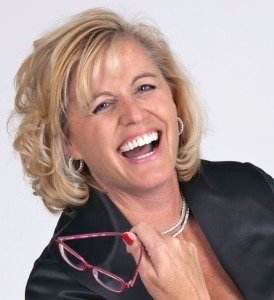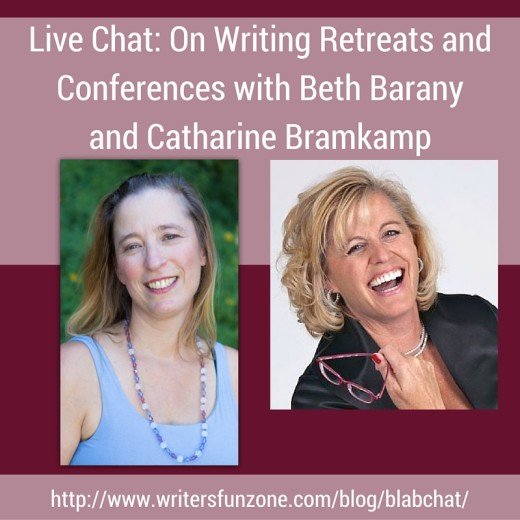Are You Afraid of Finishing Your Book? by Catharine Bramkamp
 Let’s welcome back monthly columnist Catharine Bramkamp as she shares with us “Are You Afraid of Finishing Your Book?” Enjoy!
Let’s welcome back monthly columnist Catharine Bramkamp as she shares with us “Are You Afraid of Finishing Your Book?” Enjoy!
***
We know how to start a book.
Starting a book is fun, thrilling, fraught with possibilities and dreams.
But What About Finishing Your Book?
Finishing a book can be more problematic than we realize.
My client Sue was writing her first book. With only a few chapters left to write, she ghosted me.
She contacted me a year later explaining that she couldn’t finish the book because her dog was injured at the dog park, her mother died, and she had to buy a new, used car.
It was all a mess and she blamed the book for taking her away from real life and aggravating her challenges and disasters.
Of course (and this is an easy game to play when it’s not you) the problem was not the book. But the life problems enabled her to abandon her writing.
Karen admitted that as soon as she finished her first draft, she was crushed by heavy depression. She believed that even though she did her best, her book would never be acknowledged, never make the best seller list, and no one would read it.
If that wasn’t bad enough, she bitterly complained that a clearly less interesting book was just optioned by Netflix. She was angry every time a lesser author achieved any one of Karen’s fantasy goals.
On the Other Hand
Sam’s best skill was imagining all the possibilities of what his book could be.
He spent our time together strategizing on promotional outcomes, debating different marketing services, comparing graphic designers, creating and changing the header images to the exact DPI (dots per inch).
He explained that he loved to discuss what the book will become in the marketplace.
I explained that he first needed to finish the book.
While Sam is a blue sky thinker and Karen can’t escape her own dark cloud, they are very much the same: they expect too much from their book.
They Expect Too Much From Their Book
And good or bad, those expectations sustained them far more than the work itself.
As long as their book remains unfinished, their book fantasy can remain unchallenged.
Living in possibilities is much more fun: practice the speech at the Pulitzer committee meeting, worry about who will play the lead in the movie version, shop for the perfect outfit to wear at the National Book Fair keynote speaker.
It’s not really their fault. Ee are trained to visualize, to think our way to success, make dream boards, anything except actually working. It explains why finishing is so difficult.
A Finished Book Risks Failing All Our Glorious Expectations
But fame, fortune, and miraculous weight loss is a lot to ask of a 100,000-word novel.
Perhaps we need to consider that our books are just books.
Our new book is certainly a precious object.
A new book has possibilities, it has energy, it has needs as we nurture it through promotion and recognition, giveaways, a book signing, begging for reviews.
But in the end, it’s just a book.
It will enhance your life, it will deliver the satisfaction of a job well done with bragging rights at the next conference, but it will not be everything. It can’t.
What I find is that when we downgrade our writing project from the Great American Novel Turned Into Blockbuster Film to This is a Story a Reader will enjoy and learn from, we can release our writer’s block, panic attacks, and procrastination.
Once Sam listed all the possibilities for promoting his book, the list triggered ideas for improving the MS. He finished the book and is now happily promoting his ideas through diligent social media scheduling.
Karen found the tribe of readers who specifically benefited from her book’s message.
Through Facebook and her newsletter, she began to reach out just to a few thousand fans. This led to speaking at small clubs, which after two years, led to holding a workshop during a national conference.
She feels seen and successful and doesn’t worry about other authors and their books anymore (or at least that’s what she claims.)
Sue transformed her recent problems into scenes and character development in her novel.
She managed to detach her life challenges from her writing, and eventually used her writing to help process her challenges.
She is still taking it slowly but is working on the second draft of her work in progress with a schedule built around her current needs.
We all tell stories. And for writers, a book is the best delivery system. And that is enough.
As long as we finish.
***
Want to read more articles like this one Writer’s Fun Zone? Subscribe here.
***
ABOUT THE AUTHOR
 Catharine Bramkamp is a successful writing coach, Chief Storytelling Officer, former co-producer of Newbie Writers Podcast, and author of a dozen books including the Real Estate Diva Mysteries series, and The Future Girls series. She holds two degrees in English and is an adjunct university professor. After fracturing her wrist, she has figured out there is very little she is able to do with one hand tied behind her back. She delights in inspiring her readers.
Catharine Bramkamp is a successful writing coach, Chief Storytelling Officer, former co-producer of Newbie Writers Podcast, and author of a dozen books including the Real Estate Diva Mysteries series, and The Future Girls series. She holds two degrees in English and is an adjunct university professor. After fracturing her wrist, she has figured out there is very little she is able to do with one hand tied behind her back. She delights in inspiring her readers.






